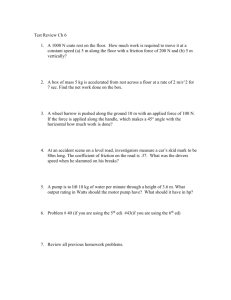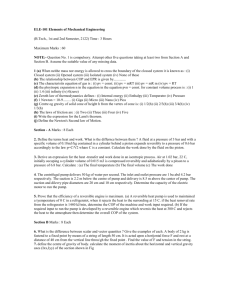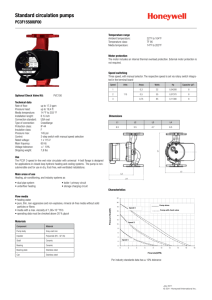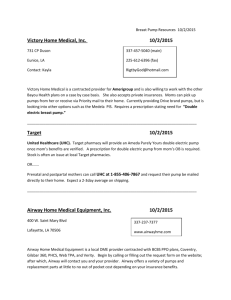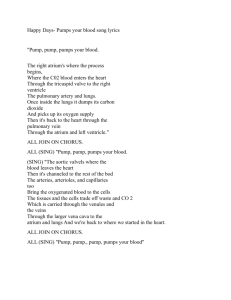GEOS 24705 / ENST 24705 Problem set #5
advertisement
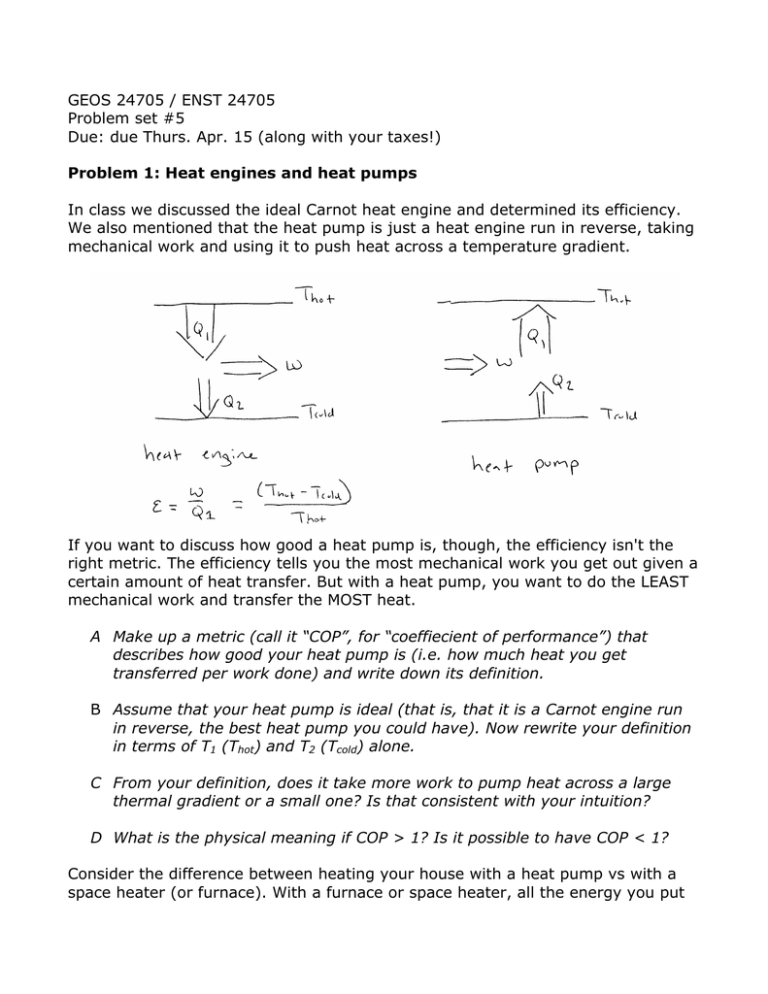
GEOS 24705 / ENST 24705 Problem set #5 Due: due Thurs. Apr. 15 (along with your taxes!) Problem 1: Heat engines and heat pumps In class we discussed the ideal Carnot heat engine and determined its efficiency. We also mentioned that the heat pump is just a heat engine run in reverse, taking mechanical work and using it to push heat across a temperature gradient. If you want to discuss how good a heat pump is, though, the efficiency isn't the right metric. The efficiency tells you the most mechanical work you get out given a certain amount of heat transfer. But with a heat pump, you want to do the LEAST mechanical work and transfer the MOST heat. A Make up a metric (call it “COP”, for “coeffiecient of performance”) that describes how good your heat pump is (i.e. how much heat you get transferred per work done) and write down its definition. B Assume that your heat pump is ideal (that is, that it is a Carnot engine run in reverse, the best heat pump you could have). Now rewrite your definition in terms of T1 (Thot) and T2 (Tcold) alone. C From your definition, does it take more work to pump heat across a large thermal gradient or a small one? Is that consistent with your intuition? D What is the physical meaning if COP > 1? Is it possible to have COP < 1? Consider the difference between heating your house with a heat pump vs with a space heater (or furnace). With a furnace or space heater, all the energy you put in is converted to heat. (All your furnace fuel burns and converts its chemical energy to heat; all of the electrical energy you put into your space heater is consumed in resistance heating in the heating elements). Space heater: And heat pump: Consider your room in a chilly Chicago winter (make reasonable assumptions). Assume that in your heat pump system, the input electrical power gets converted to mechanical work (for the heat pump compressor) without any losses. E How much more power would you need to heat your room with a space heater than with an ideal heat pump? So, why don't more people use heat pumps? Well, an actual real heat pump won’t reach ideal efficiency, and in practice COP is lower by a factor of 2-4. And most importantly, furnaces (big tubs to burn stuff in) and space heaters (big resistors, basically just giant toasters) are awfully simple. And therefore cheap. Energy isn't the only factor that goes into what choices people make. Problem 2: (Optional) Non-ideal heat engines and heat pumps In class we did a thought experiment that convinced us that the Carnot limit was the efficiency limit for ALL reversible heat engines. A. What would happen if you could hook up a hypothetical better-than-Carnotefficiency heat engine with a Carnot engine reversed as a heat pump? Draw the diagram and explain what would happen. Is this possible? B. What would happen if you hooked up a worse-than-Carnot heat engine with a Carnot heat pump? Draw the diagram and explain what would happen. Is this possible?
